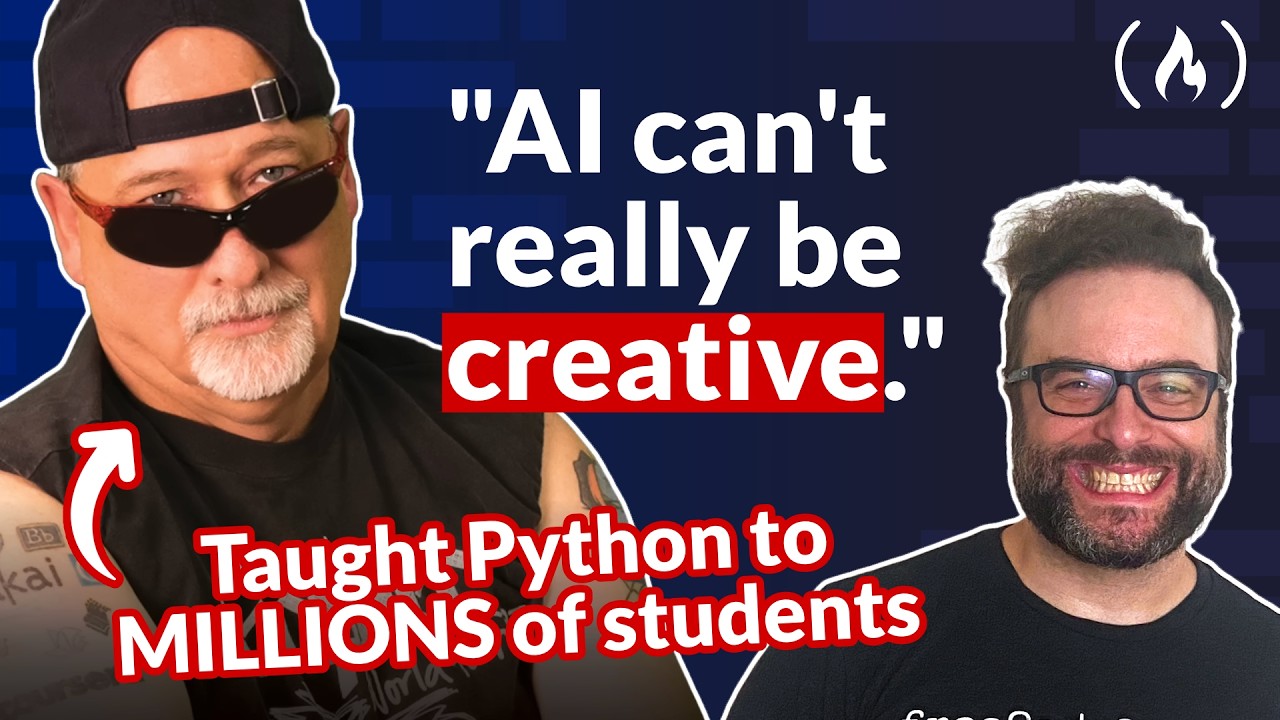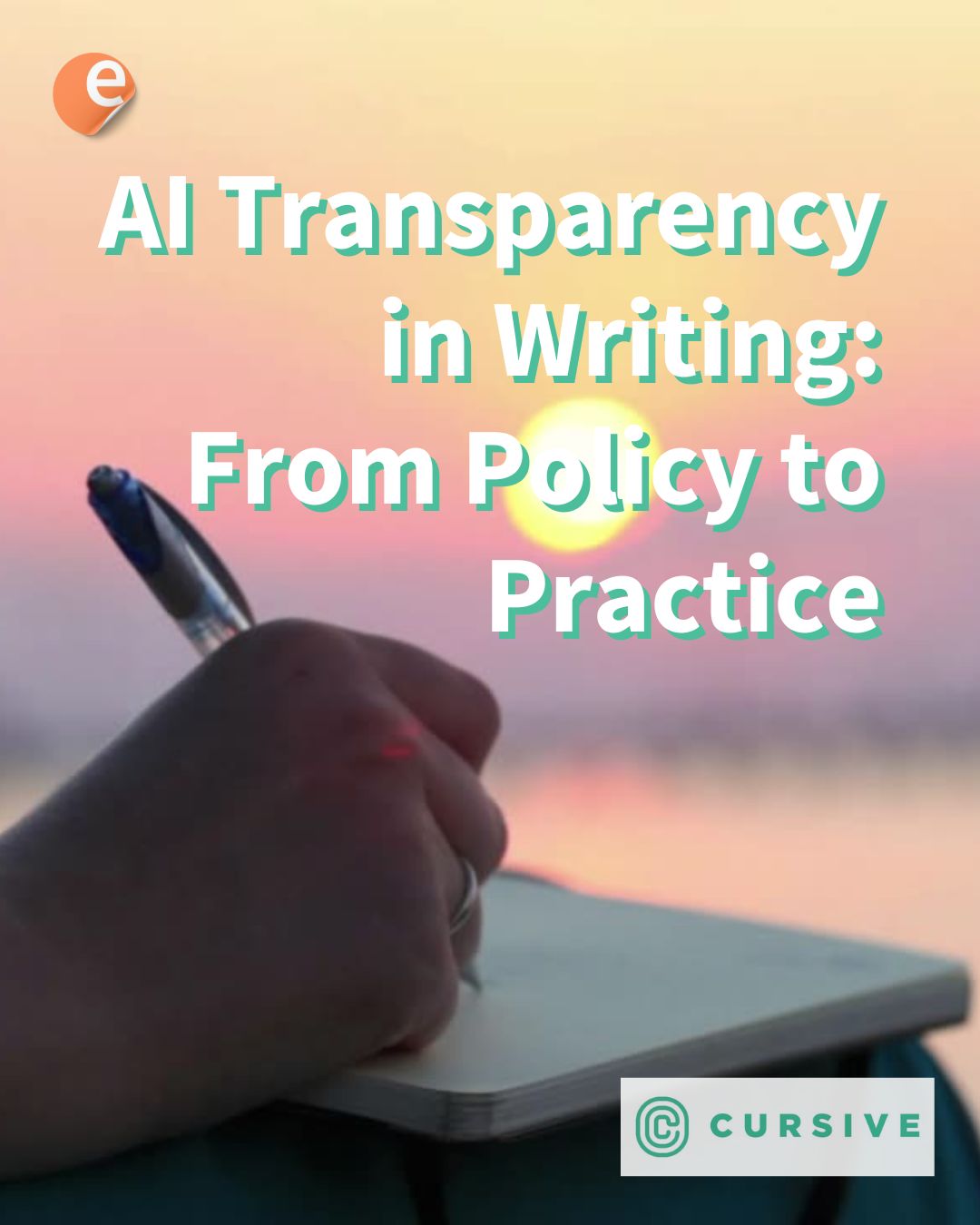More AI in Learning updates below
- Visualize Your Thoughts With A Thinking Machine
- Meet OpenELM, Apple’s AI model family
- AI and Learning and the Military Industrial Complex news
For Charles Severance, Computer Science education should be about creativity and problem solving. More about deep understanding, less about syntax. Better known as Dr. Chuck, he’s the creator of the world’s most popular Python course. Soon he will likely repeat the feat with his C language course, both completely free to enroll. Not to linger on his endless accolades, but he was also first Executive Director at the Sakai Project. The open source LMS owes a lot to him, as the eLearning world does to Sakai’s groundbreaking, inspiring features.
On a recent FreeCodeCamp podcast episode, Dr. Chuck offers his views on AI and the state of CS education. Both seen as revolutionary, they might do well shaving off 80% of its current make-up. It can help explain why the degree is becoming less required over time. And it makes for a reasonable forecast about the survival rate of AI tools.
The interview is full of implications for educators looking to embrace AI. By “outsmarting” AI, Dr. Chuck suggests a smarter way to teach CS and the art of prompt engineering. One where students are ahead of the job market trends. One where connections and community take precedence. One where technology focuses on critical global issues first, rather than becoming a solution in need of a problem. And there are problems galore.
Think Machine: Visualize and chat with Knowledge Graphs
May 10
app.thinkmachine.com
Think Machine has become my favorite AI tool as of late. It generates knowledge graphs as exhaustive as you can make them. Then you can chat with them, display it a number of ways and customize it.
Just check out this video made on Accessibility:
Meet OpenELM, Apple’s AI model family. Will they fit in your pocket?
Apple has released a family of small open source LLMs, partly as a response from the fierce competition, partly as a way to get some open source eyes on its usefulness.
OpenELM stands out, and it’s already a crowd favorite. These are small models, likely designed to be able to function fully from a mobile device.
AI & Military Industrial Complex news roundup with implications for eLearning professionals
- Army Backs Off AI Bill of Materials — The Army’s shift from demanding detailed AI “bills of materials” to summary cards highlights a tension between transparency and intellectual property protection. For corporate learning, it emphasizes the need for due diligence when adopting third-party AI solutions, balancing the benefits of advanced technology with potential risks and IP concerns. The focus on data quality and secure training environments also reinforces the importance of data governance and ethical considerations in AI for learning.
- ‘Poisoned’ data could wreck AIs in wartime, warns Army software acquisition chief — The risk of data poisoning underscores the vulnerability of AI systems and the potential for manipulation. For education and corporate training, this raises concerns about the integrity of data used to train AI models for personalized learning, assessment, and content recommendations. It emphasizes the need for robust data quality checks, bias detection mechanisms, and ongoing monitoring of AI-driven learning systems. The warning about “poisoned” data has significant implications for training and development: personnel need to be trained to critically evaluate data sources and identify potential biases or manipulation; education programs must address the ethical implications of AI and emphasize responsible development and deployment practices; and the dynamic nature of AI requires adaptive learning systems that can continuously update and refine training based on new threats and vulnerabilities.
- AI can make logistics data as valuable as intelligence or operational data for mission success — The focus on leveraging logistics data for intelligence and operational insights presents opportunities for Cross-Disciplinary Training, as breaking down data silos requires personnel with diverse skillsets necessitating training programs that bridge traditional disciplinary boundaries; Data Analytics & Visualization, as ability to extract valuable insights from complex data sets will require expertise in data analytics and visualization techniques; and Agile and Adaptive Learning, as the rapidly evolving data landscape necessitates agile learning approaches that can quickly adapt to changing needs and requirements.







